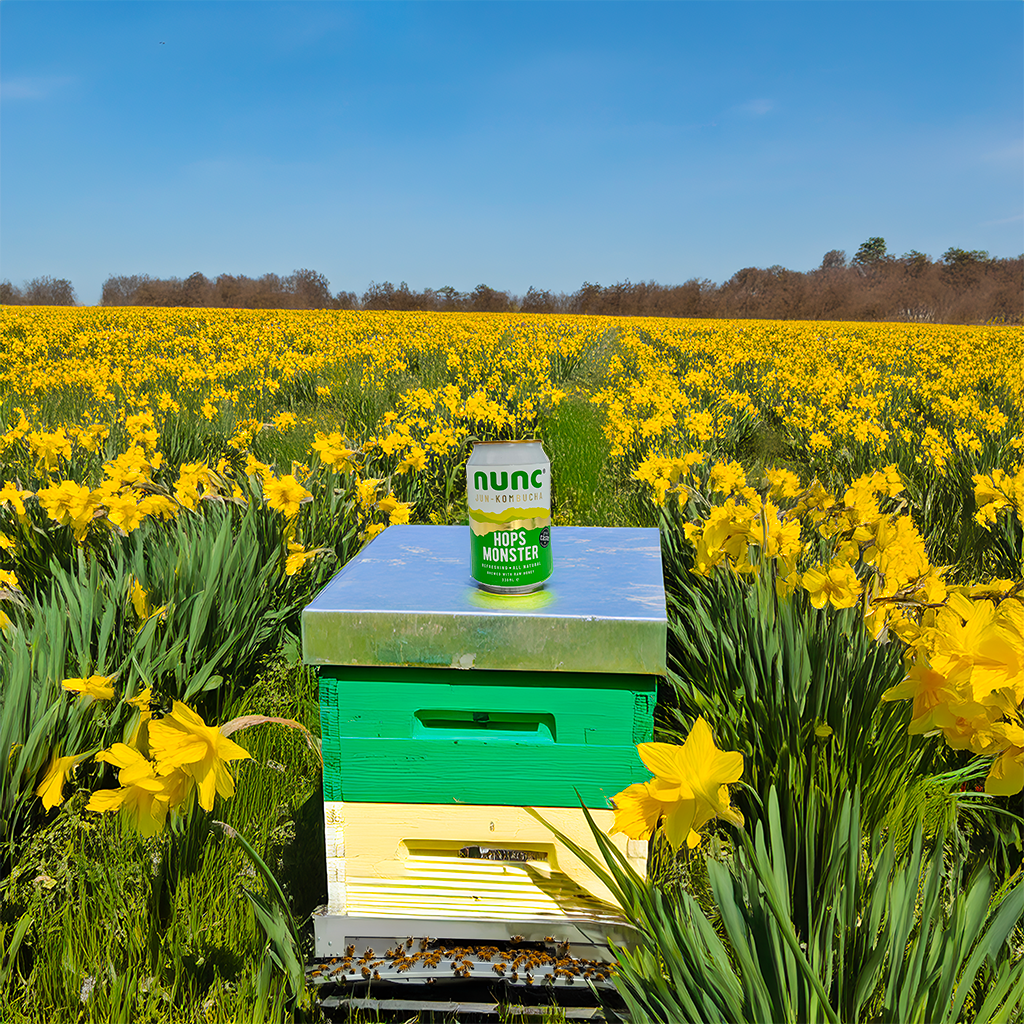
The Secret Life of Bees: Nature's Tiny Alchemists and their Liquid Gold
You may not realise it, but when you spot a bee, no larger than your thumbnail, zigzagging between flowers, you've just witnessed one of nature's most extraordinary phenomena – the creation of honey. When nature created the bee, it really outdid itself.
Welcome to the fascinating world of bees and their golden elixir.
The Bee: Nature's Overachiever
A single bee colony is a marvel of organisation that would put most multi-national companies to shame. Imagine a workforce of up to 60,000, each with a specific role, working in perfect harmony. From the regal queen bee to the diligent workers and the drone suitors (they're the males, and they don't do much) - it's a society that's been perfected over millions of years.
But here's where it gets truly mind-boggling: To produce just one jar of honey, these tiny workers will collectively visit two million flowers and fly over 55,000 miles. That's equivalent to circling the Earth twice! Each bee, during its short 6-week lifespan in Summer, will create about one-twelfth of a teaspoon. Talk about leaving a legacy!
Honey: The Immortal Superfood
Now, let's talk about the fruit of their labor – honey. This isn't just a sweet condiment; it's a substance so remarkable it almost defies belief:
- The Eternal Treat: Honey never spoils. Ever. Archaeologists have found 3,000-year-old honey in Egyptian tombs, still perfectly edible. It's the ultimate apocalypse food!
- Nature's Medicine Cabinet: Honey is a powerhouse of health benefits:
- Packed with antioxidants, it fights off cellular damage like a microscopic superhero.
- Feeling under the weather? Honey's antimicrobial properties make it nature's cough syrup.
- It's a natural energy booster that puts synthetic energy drinks to shame.
- Got a scratch? Honey's wound-healing properties have been recognised by modern medicine.
- The Flavour Chameleon: Did you know there are many types of honey? Wildflower, Heather, Blossom, just to name a few. And each variety is a liquid postcard, capturing the essence of its floral source.
The Waggle Dance: Nature's GPS
Here's a fact that'll make you the star of your next dinner party: Bees can dance. They really can! The 'waggle dance' is how forager bees communicate the location of food sources to their hive mates. During this intricate dance bees will convey to the other bees the distance and direction to a source of pollen with incredible precision. It's like a tiny, fuzzy GPS system that's been working flawlessly for millions of years before humans even thought of satellites.
Bees: The Unsung Heroes of Our Ecosystem
While we're marveling at honey, let's not forget the bigger picture. Bees are responsible for pollinating about one-third of the food we eat. Without them, our dinner plates would look drastically different – say goodbye to cherries, apples, and even coffee!
But here's the sting: Bee populations are under threat. Climate change, pesticides, and habitat loss are putting these crucial creatures at risk. The good news? We can all play a part in protecting them:
- Plant bee-friendly flowers in your garden or balcony
- Support local beekeepers by buying local honey
- Avoid using pesticides in your garden
- Spread the buzz about bee conservation
Bringing the Hive Home: Honey in Your Daily Life
Ready to sweeten your life with this liquid gold? Here are some un-bee-lievable ways to use honey:
- The Breakfast Boost: Drizzle honey over yoghurt or oatmeal for a natural energy kick.
- The Skin Saviour: Mix honey with olive oil for a moisturising face mask.
- The Cocktail Enhancer: Add a touch of honey to your favorite cocktail/mocktail for a smooth finish.
- The Cheese Companion: Pair strong cheeses with a dollop of honey for a flavour explosion.
- The Natural Healer: Apply a small amount of honey to minor cuts or burns (always consult a doctor for serious injuries).
Nunc
Unlike traditional kombucha that uses processed sugar with black and green tea, our Jun Kombucha is crafted only with green tea and raw honey that is sourced from within a 5-mile radius of our brewery. This isn't just a flavour choice – it's part of our commitment to sustainability and supporting our local ecosystem. By using local honey, we're not only reducing our carbon footprint but also directly supporting nearby beekeepers and their vital work. This hyper-local approach brings a unique terroir to our drinks, much like fine wines reflect their growing regions. Raw honey imparts a more delicate, nuanced flavour profile to our Jun kombucha, creating a beverage that's both incredibly refreshing and subtly complex. It's a taste of Buckinghamshire in every sip, and a testament to the incredible versatility of honey. When you enjoy a Nunc, you're not just having a drink – you're experiencing the essence of our local bee populations and the flowers they visit.
A Toast to the Humble Bee
From the intricate dance of the hive to the timeless wonder of honey, bees truly are nature's tiny marvels. They remind us that sometimes, the smallest things can have the biggest impact. So, the next time you see a bee buzzing by, or drizzle honey into your tea, take a moment to appreciate these incredible insects and their golden gift to the world.
Here's to the bees – may their hives always be buzzing and their honey forever flowing!
